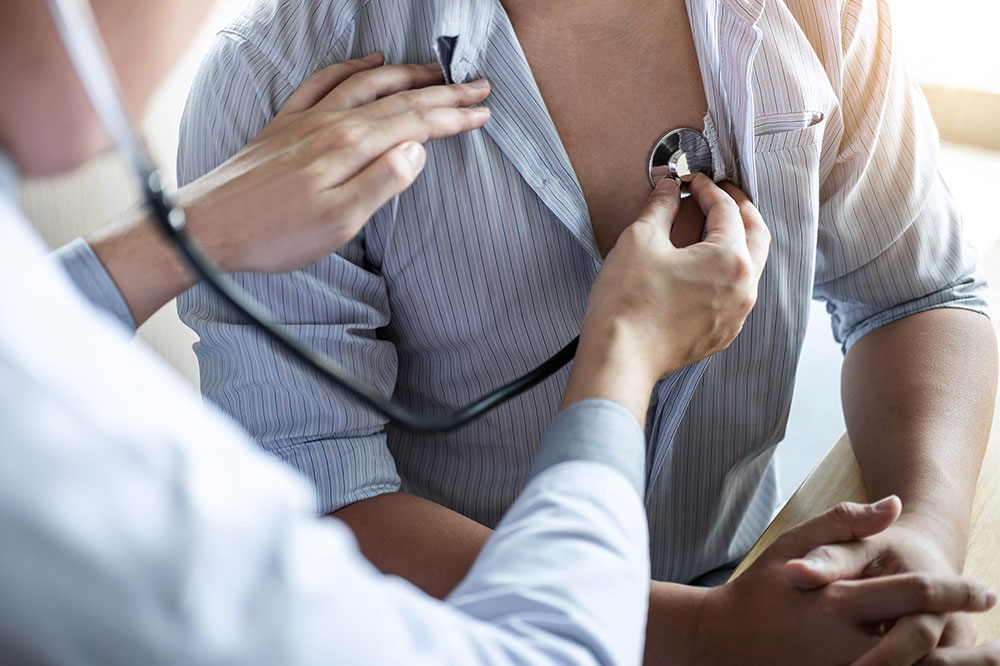
8 warning signs of cardiac issues
Most of us know that cardiac issues can be extremely dangerous. But did you know there are many kinds of cardiac problems, and each has its signs and symptoms? In this post, we’ll go through some of the common signs of cardiac issues. By familiarizing yourself with these signs, you’ll be better equipped to identify them in yourself or a loved one and get the treatment as quickly as possible.
What are the symptoms of cardiac issues?
Cardiac issues can be challenging to identify as they may not always be present with clear symptoms. However, if one experiences any of the following signs and symptoms, it is essential to consult a doctor:
Chest pain or discomfort
This could indicate an issue with the heart’s rhythm or blood flow.
Shortness of breath
This could be indicative of congestive heart failure or other cardiac problems. When the heart struggles to pump blood efficiently, it can lead to shortness of breath. This symptom should not be ignored and should prompt immediate medical attention.
Dizziness
This might signal a problem with blood pressure or circulation.
Fatigue
Fatigue is another sign that something might be wrong with one’s heart. If one is tired all the time and has no other explanation, it might be worth checking in further. If a person struggles to keep up with usual activities because of fatigue, this could also point towards a cardiovascular condition such as coronary artery disease or congestive heart failure.
Irregular heartbeat
A fast or irregular heartbeat can signal many things, including severe cardiac conditions. An irregular heartbeat may also indicate other health concerns, like high blood pressure or diabetes.
Nausea and vomiting
They are common early indicators of cardiac problems. If one feels sick or experiences these symptoms after eating, it’s essential to seek medical attention as soon as possible.
Fainting (Syncope)
It can occur anytime during a cardiac episode and often signals a much larger problem than lightheadedness. It usually indicates an obstruction within one of the coronary arteries.
Swollen legs (Edema)
This occurs when fluid accumulates in the tissues due to increased blood pressure or other factors such as infection or trauma. If one feels a cramping sensation around the calves that interfere with normal activities such as walking or standing, it might be time to see a doctor.
Causes of cardiac issues
A buildup of fatty plaques in the arteries
This results from poor eating habits and a lack of exercise.
Diabetes
It increases one’s risk of developing heart disease because it causes damage to blood vessels throughout the body, including those that carry oxygenated blood to the heart.
Stress
Chronic stress can also cause an increase in cholesterol levels and plaque formation in the arteries.
Endocarditis
It is an infection of the inner lining of the heart chambers (endocardium). This can be caused by bacteria, viruses, or other organisms that enter through tiny wounds on the skin or mucous membranes.
How can cardiac issues be treated?
CT scan
It is a type of medical imaging that uses X-rays to create pictures of the inside of one’s body. This procedure can help doctors diagnose cardiac issues like heart disease or stroke.
MRI scan
It uses radio waves and magnets to produce detailed images of organs and tissues within the body.
Echocardiogram
An echocardiogram (an “echo”) helps doctors see how well the heart works by measuring its size and shape.
Stress tests
Stress tests identify any underlying causes of heart problems and help determine the best course of treatment.
Electrocardiograms (EKGs)
This test measures the heart’s electrical activity and determines if anything is wrong with its structure or function.




